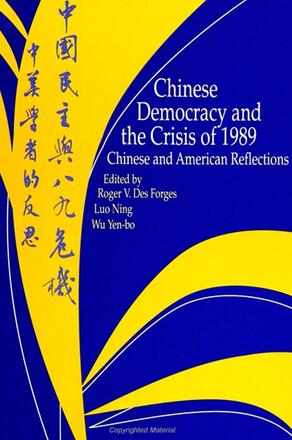
Chinese Democracy and the Crisis of 1989
Chinese and American Reflections
Alternative formats available from:
Description
This study examines the process of democratization in China, taking as a focal point the recent crisis of 1989 in Tiananmen Square, but providing broader historical perspectives from both Chinese and American scholars. The authors evaluate China's political heritage, from theories of despotism in Chinese civilization to evidence for China's own democratic traditions. They also analyze the more recent political and social crises of the 1980s leading to the massive urban demonstrations in the spring of 1989, with the conflicts that have divided the rural masses, the state, the army, the cultural elite, and the media in China; and they discuss what these events tell us about China's cultural and political future.
Roger V. Des Forges is Associate Professor of History at the State University of New York, Buffalo. He is the author of Hsi-liang and the Chinese National Revolution. Luo Ning is a Post-Doctoral Fellow and Researcher at the Roswell Park Cancer Research Institute in Buffalo. Wu Yen-bo, Ph. D. , is International Student Advisor/Program Coordinator at the University of Nebraska, Lincoln.
Reviews
"This book includes a wide array of excellent articles by Chinese as well as American scholars, reformers as well as independent scholars, representing fields as diverse as economics, history, sociology, political science, literary criticism, and journalism. The Chinese scholars' analyses of trends and events with which they have an intimate familiarity are especially valuable, and the selection raises fascinating questions about the reading of form and content in Chinese propaganda and counter-propaganda. This is a uniquely valuable collection of perspectives on Chinese intellectuals and reformers as activists. " — Jerry Dennerline, Amherst College